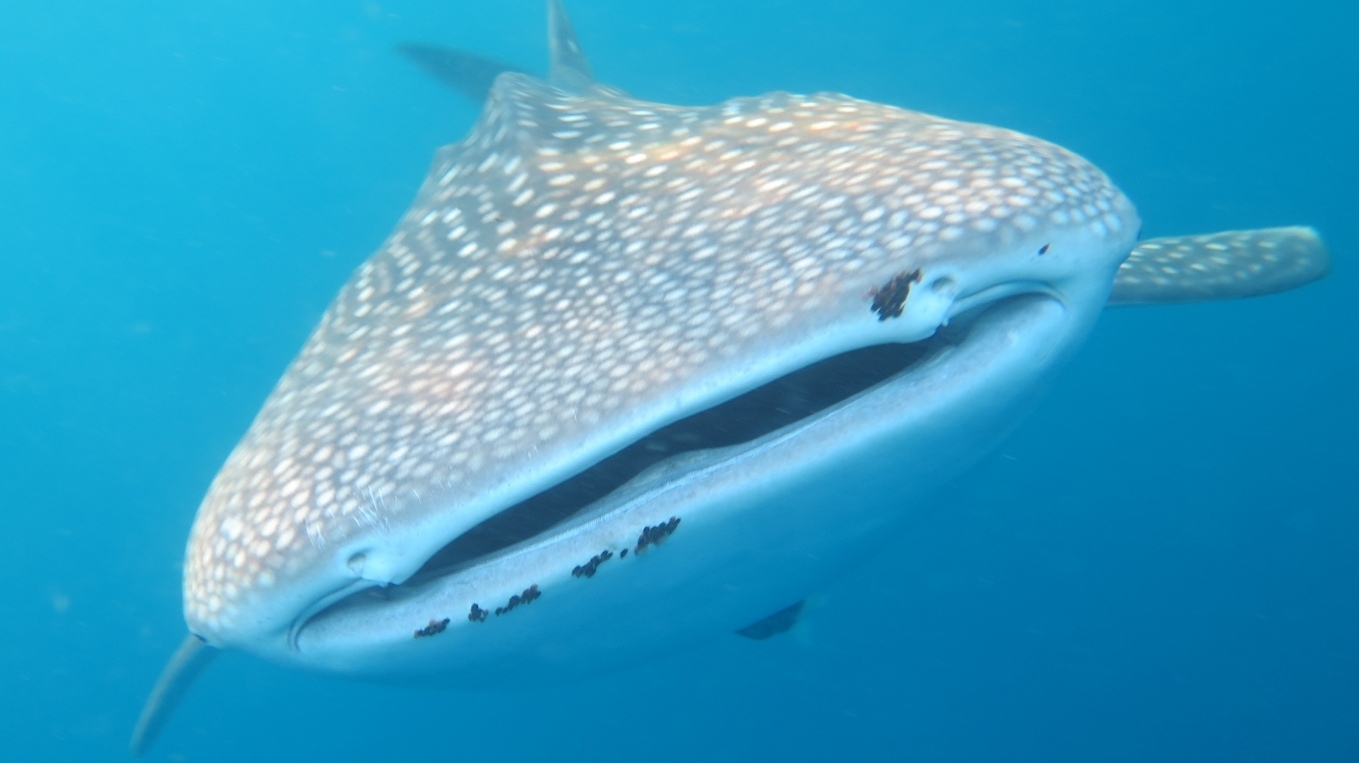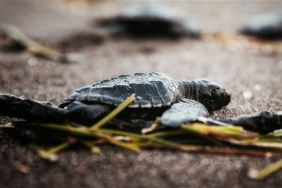GETTING TO KNOW WHALE SHARKS FROM THE PERSPECTIVE OF LOCAL INDONESIAN COMMUNITIES
Indonesia has 117 species of sharks, making it known as one of the locations with the highest level of shark biodiversity in the world. One type of shark that is often found in Indonesia is the Whale Shark (Rhincodon typus) which is often referred to as the largest fish in the world. In addition to its enormous size, the whale shark is also known for its characteristic pattern of white spots all over its body and its attitude that tends to be friendly towards humans. Unfortunately, the whale shark population continues to decline until in 2016, its conservation status was designated as endangered (Endangered/EN) by the International Union for Conservation of Nature (IUCN) due to various human activities.
One of the protection efforts made by the government is the existence of KEPMEN-KP No. 18 of 2013 which establishes whale sharks as fully protected animals, so that all forms of extractive utilization of these animals are prohibited. In addition, as a form of sustainable whale shark conservation efforts, there is also a conservation strategy contained in the 2021-2025 Whale Shark National Action Plan (NAP) which was just published in April 2021.
Whale sharks have their own unique cultural value among Indonesians, especially in various locations that have long been the animal's emergence point.
East Kalimantan - Derawan, Balikukup and Talisayan
.
The local people of Derawan have long been familiar with whale sharks, which often appear in the nets of local fishermen. The whale shark is believed to be a sacred animal so the local community prohibits its capture. It is said that there used to be a story about a whale shark that saved a drowning victim. In addition, the animal is also considered a blessing by fishermen because generally the presence of whale sharks is accompanied by the presence of other fish that become the target catch for fishermen.
To the Balikukup community, whale sharks are known as hiu mbok or grandmother sharks. The Balikukup community believes that whale sharks are the incarnation of the spirit of a kind grandmother. If fishermen in Balikukup encounter a whale shark while out at sea, they believe that a lot of fortune will come their way that day.
In the past, the people of Talisayan considered whale sharks as pests because of their swimming habits that were considered damaging to fishermen's nets. But gradually, people began to realize that whale sharks have such a high attraction as a tourist attraction. Now the community can coexist with whale sharks.
East Java - Muncar
The people in the Muncar area know the whale shark as Hiu Kekakek. The name comes from the local belief that the whale shark is the grandfather or ancestor of the fish in the sea. The whale shark is also considered a guardian of the sea, so when fishermen encounter a whale shark at sea, they make offerings in the form of cigarettes or rice while saying a prayer in Javanese "Mbah amit putune ajeng e megawe, njenengan paringi rezeki" which means "Mbah excuse me grandson wants to work, please be given sustenance."
In 1976, when the community found a whale shark stranded in Muncar, the community worked together to bury the whale shark using a shroud. This was done because the whale shark was also considered a sacred animal to them. When protection regulations prohibiting the capture and utilization of whale sharks came into effect, the community became even more convinced that these sharks should be protected and preserved.
East South East Nusa Tenggara - Labuan Bajo
The whale shark is known by the local name Kareo dede. The Bajo people have a local customary belief that prohibits the capture of whale sharks. They believe that whale sharks are guarded by gods and that they have the ability to help fishermen at sea. For example, one fisherman recounted that a whale shark once saved a group of fishermen who were about to drown at sea by carrying them on its back.
Gorontalo - Botubarani
The Botubarani community recognizes the whale shark as Munggianggo hulalo which means moon shark. Local people say that Botubarani has been the home of whale sharks for a long time. The appearance of whale sharks is considered a sign of the start of the small fish season. People believe that if there are no whale sharks, then there are no small fish for fishermen to catch. In the past, whale sharks were also considered as nuisance pests by fishermen due to their habit of eating small fish in the sea. However, since the community realized the attractiveness of the animal as a tourist attraction, they have accepted the existence and appearance of whale sharks well. Some fishermen are even willing to damage their nets and lose their catches so that the whale sharks caught in the nets can be released back to the wild.
West Nusa Tenggara - Sumbawa
The community around Teluk Saleh, Sumbawa knows the whale shark as the "Pakek Torok" which means deaf shark. The term comes from the behavior of the shark, which seems not to hear the roar of the bagan engine when it is lifting the net and still comes closer to the bagan. Whale sharks are considered a good sign by fishermen because similar to the belief of the Derawan community, the presence of whale sharks is generally accompanied by the presence of other fish that are targeted by fishermen.
West Papua - Cenderawasih Bay
.
The people of Cenderawasih Bay, particularly in Kwatisore, believe that their village is home to whale sharks. The local people know the shark by the name Gurano Bintang, which means shark with stars. The nickname comes from the pattern of white spots on the shark that resemble stars. Whale sharks are also believed to bring good luck and blessings, so they are forbidden to be harmed, killed or eaten by the local community.
Whale sharks have become an important part of the lives of people in various regions in Indonesia who have lived side by side with these animals for a long time. In addition to preserving the local wisdom that characterizes indigenous communities in Indonesia, cultural values that also simultaneously carry conservation and sustainability values can certainly support whale shark conservation efforts. In addition, local wisdom-based conservation is also expected to increase public awareness that whale sharks need to be conserved not only for their important role in maintaining ecosystem balance, but also as an irreplaceable aspect of local culture and tradition for the people of Indonesia.




